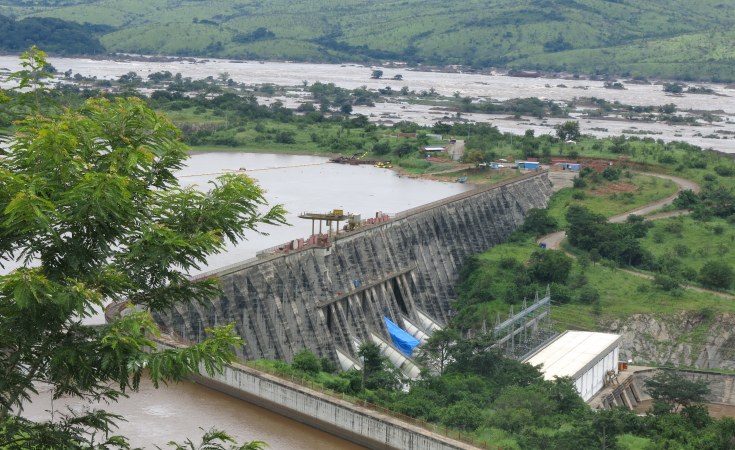Cape Town — The South African parliament has heard a submission from two leading civil society organisations, calling for them to play their oversight role and stop government funding to the Grand Inga Dam Project in the Democratic Republic of Congo (DRC). Yunus Carrim, chairperson of the Select Committee on Finance, said that he was "embarrassed" that it was the first time the issue of the project's feasibility and risks to the South African economy was ever brought to Parliament, and that the committee would put the recommendations into their report.
The South African government signed a treaty and Memorandum of Understanding (MoU) with the DRC government, committing the country to buying 2500 MW of electricity from the hydropower project and paying for the transmission lines from the DRC to South Africa. Recently, the country's electricity plan, the Integrated Resource Plan (IRP), confirmed this commitment by forcing 2500MW from the project into it, based almost purely on the signing of the treaty. On October 30, 2019, Minister Tito Mboweni made his Medium Term Budget Statement (MTBS) policy statement, declaring on the one hand the dire state of the economy, and on the other giving funds to the project for at least 50 visits to African states for hydropower.
Eishkom and the passing of its debt
Eskom would be the anchor offtaker in this deal. But Eskom's budget does not get tabled in the Estimates of National Expenditure, because it is a State Owned Entity (SOE) and not a National Department.
This is the same SOE that has landed the country in R450 billion of debt and which has been given multiple bailouts from Treasury, including one from the latest MTBS of R26 billion. Should Eskom put in significant funds into the project, and should they then not be able to pay, their debt will further get passed on to the State as a contingent liability. This is because the State is the sole shareholder of Eskom and will ultimately be responsible to underwrite the liabilities incurred by Eskom in the project.
Questioning Grand Inga
The proposed Grand Inga Hydropower project will be constructed at the Inga Falls, on the Congo River, in the DRC. The site is almost 3,000 km away and South Africa, according to the Grand Inga Treaty between The DRC and South Africa, will need to fund the construction of power lines from the border of Zambia and the DRC. In the 2019 IRP, South Africa plans to purchase 2500 MW from the Grand Inga by 2030. At the moment, the South African government has not determined the full costs, risks and benefits for the local economy.
High risk
The Grand Inga Project is fraught with many risks, including those for South Africa that include differing strategic visions, governance risks, technology risks, security of the transmission lines, delays and cost overruns, externalized job creation, and tariff hikes. A number of scholars writing on foreign investment and project financing have classified the DRC as high risk. Just to highlight the gravity of these risks in May this year, deriving from a World Bank 2016 scorecard report on the Grand Inga project, the Bank asserts that the risks for the project failing were high; especially the risks associated with politics and governance, fiduciary responsibilities, institutional capacity for implementation and technical design capacities.
We simply cannot afford it?
This project involves an ultimate investment on an unprecedented scale and where we are starting from a financially precarious base. We need to exercise caution and properly assess the risks and feasibility before putting any funding into it. We cannot risk wasting any more money on projects without determining feasibility. We know it is not the least costly option.
Parliamentary oversight
WoMin and International Rivers reminded Parliament that it has a constitutional duty to ensure transparent and cost-effective budgeting and appropriations. Parliament needs to call for an independent appraisal of the risks and feasibility of this project and ensure that there is public participation. Parliament must ensure that no funds are approved for expenditure on the Grand Inga project until a full feasibility study assessing the financial and legal risks of the project is done, and Eskom has demonstrated that it is a financially sustainable SOE.
At such a critical time, we can agree that the current administration has committed South Africa's scarce resources and time to a burdensome treaty and a costly project that will likely only come online in the year 2030 at best.
Sanyanga is the Africa Programme Manager at International Rivers and Reddy is with WoMin African Alliance


